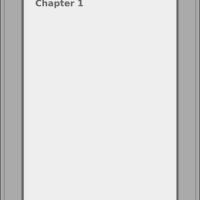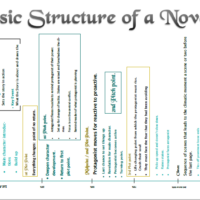
by Anna Johnstone | Nov 8, 2022 | Offers, Service
Hi all.
In the last eighteen months, I have been proofreading and copyediting the business emails and letters of an ESL client. Not only is this proving to be hugely rewarding work (I love being helpful) but it’s a service I am keen to extend to a wider audience. If you, or anybody you know, would benefit from this service please share this post with them, and I would be delighted to hear from them.
While free tools like Grammarly have their uses they can be a touch on the comma-happy side. If you want that personal touch of having a person at the other end of the service, then there is no substitute for hiring an editor to double-check your business correspondence is top-notch before you send it out.
Benefits include:
- No upfront charges.
- Work is itemised and invoiced monthly rather than per item. I will invoice for all the work submitted in a given month on a rolling account that is free for you to stop at any time. No contract charges will apply.
- No set minimum amount of work is expected. If you only have one or two letters or emails for me to check per day then that is absolutely fine. Just email them to me and send me a text to let me know and I will get them back to you as soon as I can: usually within the hour depending on how busy I am.
- All work is priced at a set rate per word for you so you will know exactly how much it will cost before you send it.
Service Ts & Cs
- Invoices are issued on the first of each month and are due for payment by the end of the 15th.
- The client acknowledges that by sending work they are agreeing to pay for work completed on time and in full.
- Failure to pay on time will result in late payment fees of £10 per week and withdrawal of all services until the account is clear.
- My working hours are between 9:30 am and 5 pm GMT Monday to Friday. Work sent for completion outside these times will be subject to a 50% increase.
by Anna Johnstone | Sep 14, 2017 | Blog, Service
Here it is!
I’ve now closed down the old editing blog and copied my posts across so I am only managing one website. This site allows you to send enquiries, view prices and services, as well as read news and advice on writing, editing and self-publishing, all in one place.
It also allows you to post testimonials and reviews of my service. Feel free to have a click around and explore and do let me know what you think.
by | Jun 6, 2017 | Blog
1. First draft.
This is your raw manuscript complete with typos, grammar issues. I’m assuming here that you have already outlined by this point. If you haven’t don’t worry… yet. Suffice to say, this is not the version you want to send out to anybody especially not editors. Trust me, they will not thank you for making them read this. Sending the first draft to an editor could prove extremely expensive and time-consuming, not to mention disappointing when you see how much work still has to be done.
2. Self-edit
DO NOT SKIP THIS PART.
If you have an outline already, well done. If you don’t, pay attention. You need to outline the text as it is. Once you have done this you can compare it to your previous outline and see where you have strayed or dithered from your plan. It will also show you where you can improve. Once you have applied these changes, and cannot take it further, (and run a basic spell check) then is the time to submit to an editor.
3. Alpha readers and developmental edit.
By now you should have selected a few people to give your manuscript an initial once over. Doing this and submitting the manuscript to an editor will provide reader perspective at the same time and will allow you to gauge the readability sooner rather than later. Some might find your style a little too formal for the genre, others too casual. Inappropriate tone can have a dire impact on the reception your work receives and at this stage you have time to fix it.
The developmental edit looks at your plot as a whole and guides you in how to correct it. Listen to your editor. This is not the stage to be worrying about spelling and grammar and most will not bother with it. There is no point correcting that side of things until the story is right.
Apply changes.
It is up to you to decide how you apply the advice. It’s your manuscript, just bear in mind that your editor wants your book to do as well as you do. Their job is to help you improve upon what you have, not to tell you how good it already is. Nor is it their job to write the story for you.
4. Copyedit
DO NOT MISTAKE THIS FOR THE PREVIOUS STAGE.
Copy editing is where the grammar and sentence structure is adjusted for clarity, and punctuation has been checked. It is a little more involved than proofreading but all structural issues should already have been addressed. Copy editing is very different from developmental editing. If your copyeditor is finding problems with plot, dialogue flow and characters it implies one (or more) of the following.
-
You have involved them too early. This is the most common and mostly occurs because of a fundamental misunderstanding about copyediting involves. You might be able to renegotiate the agreement from copy edit to developmental edit but bear in mind that this might well cost you more than the lower level edit. Not all editors offer higher and lower level editing, but they may be able to point you at a reliable source if they don’t.
-
You have not listened to your editor. A competent copy editor should let you know as soon as they realise that your text is not ready for them and advise you on how to go forward. When they have alerted you to the problems, go back to the notes from your developmental editor and apply the relevant changes. A good copyeditor will NOT try to get more money out of you. Nor will they offer to do both levels in one go. If you ask, they should politely decline and tell you why.
If your manuscript is less than 10k words they might continue the work and let you know of the holes. If it is more they should pause and consult you as to the direction they should take. It is important that you respond promptly to this as it could impact on your schedule if you do not. If you want them to continue working on your manuscript is it up to you to ask them and for you to ask how much more it will cost. Do not simply assume they will do it at the same rate. The SfEP recommended minimum rate for developmental editing is £30.50 per hour. For copyediting, the recommended rate is £26.50. this is because one level is more detailed and involved than the other.
-
Both.
5. Proofread.
Once you have applied the changes you will need a proofreader to go over the manuscript in detail to filter out any errors that have crept in during the last stage. Intervention here should be minimal. If your copy editor has done their job properly, nothing beyond spelling and punctuation should need to be corrected.
This is the last stage of editing. For those of you who don’t know, it gets its name from the phrase ‘galley proof’ which would be the final copy presented to the typesetter prior to printing. It’s really the last chance to correct typos and other little errors.
6. Write blurb.
By this stage you should have had a final plot in place for some time. I found that the outline I created in the self-edit helped me to write mine as it offered a readymade summary of the whole. These are not easy to write. You have spent months working on this, so how do you summarise your work into a single paragraph? There are services which will help you do this, but it might be worth asking your developmental editor for a hand. This is your elevator pitch for your story so it is worth taking the time to get it right.
7. Cover art.
Unless you are a cover designer, do not try to do this yourself. Dabbling in watercolours is not the same as being able to create a dynamic, eye-catching cover that competes with all the other covers AND reflects your book. You need to be clear about the sort of thing you need. Your designer is not a mind reader.
8. Formatting.
A minefield of technical tripwires. If you have done it before, go for it. Otherwise, use something like Vellum and get it right. I’ve not used it myself but I have heard a lot of positive things about its usability and results. The problem here is that Vellum is a MAC only piece of software and not all of us have MAC money. You can’t go wrong with the practice of finding someone who knows what they are doing and paying them for their time and effort.
9. Send out to trusted beta readers
WHO SHOULD NOT BE PICKING UP ERRORS BY THIS STAGE
The beta reading stage is a reader feedback stage only. They should not be finding errors or typos, they should not be finding plot holes or inconsistencies. The copy they read should be as near to being published as possible. Relying on readers (often unpaid) to do the job of a developmental editor is not only unwise but unfair to your readers
Finding reliable readers might be difficult to manage but writers’ critique groups might be a good place to start looking. Some betas might go quiet for no apparent reason, others might not finish the book at all. Don’t worry. Find another and remember not to approach that person in the future. This is why it is important that you select five or six people to read who can be relied upon to come back to you with valuable feedback. If you use one who charges, be sure to ask for references that you can check if you have never encountered them before. You don’t want to end up paying, only for them to disappear.
10. Publish.
This is up to you. Also, this post is not about the relative pros and cons of self vs. traditional publishing. The most important piece of advice I can offer here is that you should not be paying the publisher to print your work. They should be buying it from you. Whenever a publisher starts asking for you to pay them, walk away.
11. Give your team feedback
When you sent your work to alpha readers for a sample response you did so to gauge how it was received, so you knew how to improve upon it. The same applies to other creative industries. They are not looking for an essay on their services, just a thank you for their time and some pointers on what they did well and how they can improve. Whether editors, cover artists, formatters or readers, it is vital that you offer them feedback. They don’t know how they’ve done unless you tell them, and a good review, or recommendation or two doesn’t go amiss either. These days, simply paying the invoice and disappearing is not sufficient to let people know they have done the job well. Failure to offer feedback can often be taken as a negative response to their work.
by | Apr 7, 2017 | Advice, Blog
Proofreading and copyediting, while not nearly as entertaining as the writing process to some (a lot of us quite enjoy it), is still important. For many authors who don’t outline editing is a chance to iron out plot holes and check character arcs. For others, it’s a chance to flesh out some parts you might rush through just to finally finish creating the bones of the story but that’s the bigger picture. This post covers some of the reasons why DIY editing, is not always a good idea. There is no substitute for properly and carefully checking your own work for errors or, if the mere idea of proofreading sends you straight to the Land of Nod, hiring someone like me.
1. It won’t catch caption errors, transpositions, inconsistent formatting or repeated text.
There is no way around it. So long as you’ve spelled each individual word correctly, it will not bring it up. The red and blue squiggly things in Word are a guide but they are only as reliable as to human being who programmed them. A spellcheck is set to look for individual words but it doesn’t always see them in context. Typing ‘form’ instead of ‘from’ won’t be picked up as an error. A spell checker is no substitute for knowing the rules of grammar and punctuation. How will you know if the suggested change is correct if you don’t understand how commas work in the first place. You’ll never catch every mistake on your own, but you have a good chance of creating some new ones if you rely solely on the automatic functions of your word processor.
2. Proofreading is more than a manual spell-check.
This is the last stage of editing prior to publication. It’s vital not to leave this stage to chance. It allows you to look for colour variations, layout issues, spacing, typeface consistency, missing items, tense and tone errors, content errors, inconsistent capitalisation, that page numbers are correct, and other formatting problems. In short, this is your polish. No matter the content, presentation matters and sloppy presentation will come back to haunt you.
3. It can’t check for flow, or that the language style suits your audience.
It won’t be able to tell whether your content delivers the content promised in the title. Does the writing style of the meet their expectations? Are the facts correct? If it’s an academic work, are those facts supported by cited evidence? If my spellchecker had been able to check references, I would have had a lot fewer headaches while I was studying for my degree but I would have still checked them for errors myself.
4. It cannot fact-check.
Given enough time to do their homework, a good writer should be able to write about anything. Problems occur when guessing comes in and spellcheck won’t be able to check for accuracy, homophones, mixed metaphors or awkward similes.
5. Over-familiarity with the text.
You’ve been staring at your essay for days. Constructing arguments, deconstructing sources, and now you are finally able to submit your assignment to your tutor. This is the trouble. You will read what you expect to see on the page and this will lead to errors being missed. Even leaving it for a few days will not entirely eliminate this problem. Human memory cannot be trusted. This reason alone is reason enough to recruit an extra pair of eyes. Couple this with the limited ability of your average built-in spell-checker and you have the ideal conditions for missing some very embarrassing gaffes.
by | Nov 13, 2016 | Blog, Offers, Service
This is just a quick note to let you know that I am now on Fiverr. You can find my profile here. I have one active Gig for proofreading, and another for Beta-reading which is pending approval and should be up in a couple of days. They are both basic packages but I am open to suggestions for others. Please add these to the comments thread. I prefer to quote on an individual basis rather than have a block pricing scheme like Fiverr, however, I have been advised that it’s a great place to get noticed.














